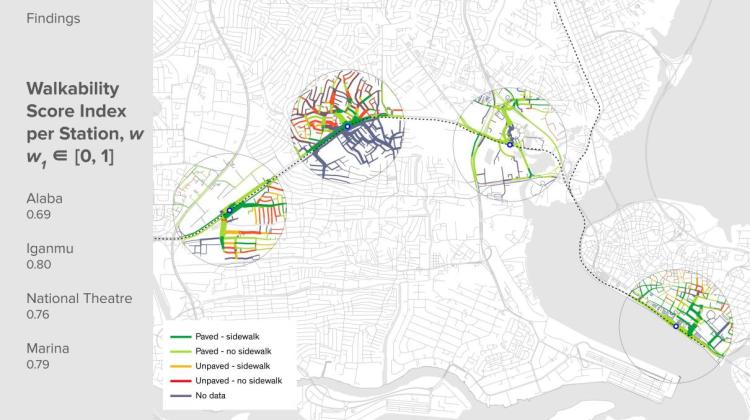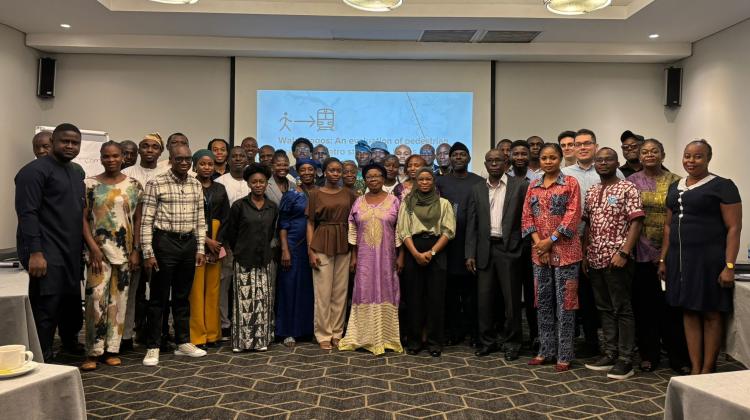Waka Lagos: An Evaluation of Pedestrian Access to Metro Stations in Lagos, Nigeria



The project asks what defines a walkable environment in Global South cities, and how can a combined approach of AI-driven analysis and local insights better capture pedestrian experiences and infrastructure needs.
In Lagos, Nigeria, pedestrian experiences are shaped by factors that don’t always fit into walkability assessment models, especially those developed in Western contexts. Some concerns—like how street vendors, pavement conditions, transit access, and safety concerns shape walkability—can’t be fully captured through AI-driven analysis, such as Google Street View assessments.
Our approach brings in on-the-ground insights from Lagos residents themselves. Through workshops with local stakeholders, we’ve gathered first-hand insights on what makes a space walkable for them. We’ve also collected data on street conditions and pedestrian perceptions to better understand the nuances of walkability in this context.
Our goal is to rethink how walkability is assessed in Global South cities and develop meaningful metrics that reflect local realities. More than that, we aim to create a replicable framework that blends AI-powered mapping with deep community knowledge—one that can help cities address data gaps and guide interventions that enhance quality of life.


